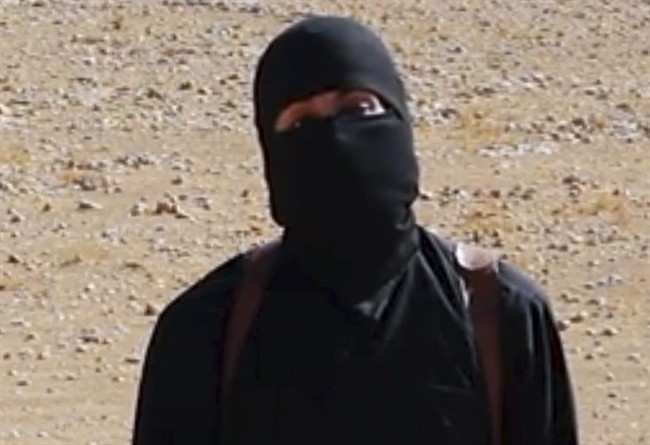KUWAIT CITY – Two members of Kuwait’s so-called “stateless” community say the Islamic State militant known as “Jihadi John” was born to an undocumented family in an impoverished corner of the oil-rich nation.

The details flesh out the background of Mohammed Emwazi, who was last week identified as the knife-wielding, British-accented masked militant in several of the extremist group’s beheading videos.
Emwazi left Kuwait for Britain when he was a boy. He went to state schools in London before studying computer science at the University of Westminster, leaving for Syria in 2013.
A family acquaintance from Kuwait described the young Emwazi as a polite boy, almost timid in nature.

Get daily National news
“It’s very shocking to see how he turned out, a mouthpiece for a terrorist organization. His father is very distressed over what happened to his son. He’s not well,” said the acquaintance, who only gave his first name, Tareq, fearing government retribution given his undocumented status.
He and Abdul Hakeem al-Fadhli, an activist for stateless rights, said Emwazi lived in the run-down Taima area of Jahra, on the outskirts of Kuwait City.
Jahra is home to many of Kuwait’s “bidoon” community, which includes descendants of desert nomads and others who are considered stateless by Kuwait. They have long claimed the government is depriving them of citizenship and rights, including access to the country’s generous public benefits such as free health care and state jobs.
Al-Fadhli described Emwazi’s hometown as “a slum area” – a condition he blamed on state policies.
“The government does that intentionally. Stateless people have no value to the government,” he said.
Members of Emwazi’s family have been taken in for questioning and instructed by authorities not to speak to the media, the two men said.
Kuwaiti authorities have not spoken publicly about Emwazi since his identity was revealed.
An official at the Ministry of Interior confirmed authorities were questioning some members of Emwazi’s distant relatives in Kuwait “to find out what they know.”
The official insisted on anonymity because he was not authorized to speak publicly.

Comments